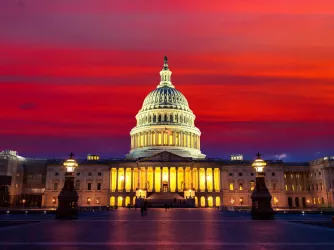Table of Contents
Hey, University of Utah: 'Hate Speech' Is Free Speech, Too
I hate a bunch of things, such as brussels sprouts. I also hate certain actions, like murder. And while I respect the fundamental humanity of all persons, I have to admit that I also feel hatred for specific people who have done very bad things, like commit genocide in cold blood.
The First Amendment leaves me free to hate all kinds of things and all kinds of people, for any reason or for no reason, and to tell others about it. I can even go up to someone and tell them I hate them, so long as I don't say it in such a severe way that my speech falls into one of the very narrow exceptions to the First Amendment, such as truly threatening someone's life.
"Hate speech" is not one of those exceptions. That's why I'm often puzzled to read that university administrators, who should know better, think that their own moral views trump the First Amendment and that they can tell us what we're allowed or not allowed to say we hate.
At the University of Utah, for instance, two Christian men preached to a crowd of more than 100 students in the Union Free Speech Zone, according to Andreas Rivera in The Daily Utah Chronicle yesterday. Some students "who opposed the preachers' views made their own, satirical signs ... and mocked them by shouting, 'hail Satan' and 'sin will save us.'" Someone threw a water bottle that hit one preacher in the head. He asked the crowd,
"Do you hate us being here?" Several members of the crowd shouted back, "No, we hate you."
All of that, except for the water bottle, is protected speech, even outside of the "free speech zone." Some of it was, explicitly, hate speech, and Dean of Students Annie Christensen drew the line:
Annie Christensen, dean of students, confronted the crowd and reaffirmed the rules of the Free Speech Zone, including not to single anyone out with derogatory terms or violent threats.
"If a student is singled out and threatened, that's unacceptable, because we need to keep a harm-free environment," Christensen said. "If he engages in hate speech or fighting words, that's where we draw the line."
I see how it is: If the preacher engages in "hate speech," she draws the line. "Derogatory terms" about students are unacceptable, but derogatory terms about the preachers seem to be OK. In reality, Christensen's moral views have no bearing on the First Amendment, and all of this expression is protected, no matter who said it about whom.
What makes the dean's misstatement even more shameful from a free-speech perspective is that University of Utah is not just a public university legally bound by the First Amendment, but also that its speech-related policies are rated a "green light" by FIRE. This means that the university does not have any policies on the books that unduly restrict free speech.
Yet if, in practice, University of Utah administrators are willing to censor and punish speech that is actually protected both by the First Amendment and by university policy, that's a problem.
FIRE will be watching.
Recent Articles
FIRE’s award-winning Newsdesk covers the free speech news you need to stay informed.

O holy fight: New Hampshire Satanic Temple statue threatened by more than vandals

One day after FIRE lawsuit, Congress passes changes to filming permits in national parks

VICTORY: FIRE lawsuit leads California to halt law penalizing reporters, advocates, and victims who discuss publicly known information about sealed arrest records
